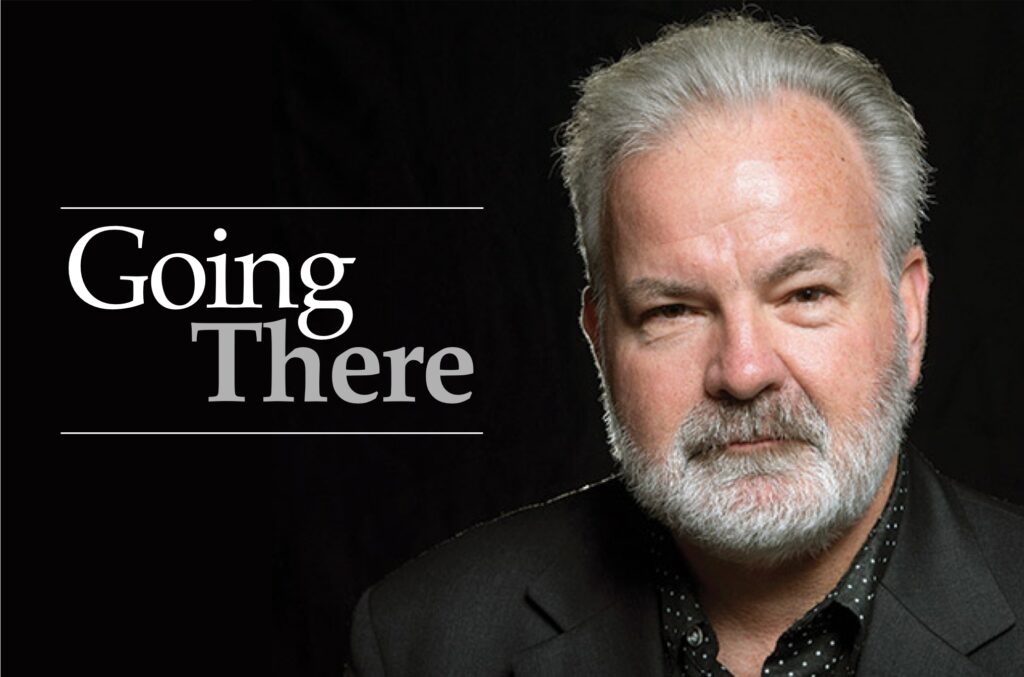Readers comments: 11-13-20
Few trust our election system
Dear editor:
If this past presidential election showed us one thing, it is that very few people trust our current election system. One side of the aisle is concerned with active voter suppression, while the other side worries about widespread voter fraud. Both concerns have an ugly tendency to get blown out of proportion—but they are valid fears.
Why is voting still conducted in the stone age? In a time when everything from state secrets to your bank account is accessible via the internet—why can’t we vote online?
The main pushback to this idea has always been election security. Does anyone think a secure online voting portal is less safe than passing millions of ballots through multiple hands? Sweden and Switzerland certainly don’t think so—they’ve both transitioned to an online election system. Also, most modern smartphones have built-in functionality for either biometric authentication through face ID or fingerprint authentication, and these safeguards would make the process even more secure. Finally, making voting so accessible would lead to higher turnout, reducing the chances of voter suppression, and generate results instantaneously.
Creating an online election system would take a lot of work, and we’d still need a traditional alternative for people who aren’t online, but I’m confident it’d be well worth the effort.
Sam Swansen
Claremont
A good thing can also be bad
Dear editor:
So the hand slapping that judge Sara Heckman last week gave him in her ruling that the governor has overstepped his authority for the last 8 months by issuing edict after edict without advance corroboration from the legislature didn’t phase him. The reason used for the ruling was his edict for mailing ballots to every single voter, which is definitely unconstitutional, both at a state and federal level.
Since the governor’s lawyers (paid for by our taxes) are in the process of appealing this ruling, he blithely goes on his way with yet another edict regarding driver’s license renewals for seniors over 70. They can now renew their regular license online. Of course, it only applies while the “CA State of Emergency” continues, or until he “modifies” the DMV mandate once again without legislature or voter’s approval.
What this tells me is the DMV hasn’t fixed their ability to serve the public in a timely manner and would like some relief from the crowds that still wait (many times for hours) to complete this renewal process. It also tells me that seniors will have to pay online and expose their credit cards to the government that may or may not use this information for their own nefarious purposes.
Once again, a supposed good thing can also be a bad thing.
Hayden Lening
Claremont
Helping Citrus College
Dear editor:
Congratulations to trustee-elect
Laura Bollinger on becoming the next member of the Citrus College Board of Trustees. Mrs. Bollinger has given many decades of service to Citrus College and deserves our support. In addition, trustee Sue Keith is retiring from the Citrus College Board of Trustees. Trustee Keith may be the longest serving elected official in the history of Claremont. She served with dignity and grace for eight years on the CUSD Board of Education and for two decades on the Citrus College Board of Trustees. She helped guide Citrus College into becoming one of the most successful community colleges in California.
While learning more about Citrus College over the past year, Citrus College and community colleges across California, and the nation are facing challenging times. The digital divide is real. About 55 percent of the roughly 20,000 students who attend Citrus come from low-income families. And 3,500 students have not returned to Citrus College this semester. Approximately 435 students are experiencing homelessness.
There is a way you can help. If you are already not a supporter, please join me in becoming a monthly contributor to the Citrus College Foundation. It has two crucial programs helping Citrus College students. Its Providing Assistance for Student Success (PASS) Campaign provides technology to students to access their classes during remote/
distance learning. The Citrus College Foundation provides technology vouchers or refurbished Chromebooks to students in need of technology. The second program, Harmonica for Vets, supports services through the Veteran Success Center for students who served in the armed services.
Joe Salas
Claremont
Celebrating
Dear editor:
I want to thank everyone who engaged with our campaign for city council—contributing, endorsing, volunteering, sharing insights and concerns, and giving me such hope for the future of our community.
I stepped into this campaign because I love my hometown, and I believe we can and must do better for Claremont residents during this time and beyond.
Together, we built a collective vision for renter protections, true public safety, affordable housing, an actionable climate plan, a budget grounded in our residents’ values and needs, and more – all guided by an unequivocal commitment to anti-racist, inclusive policymaking.
I want to congratulate Councilmember Calaycay for winning re-election for a fifth term. I’m grateful to Corey for his service, and I look forward to working with him and other members of council to address the concerns residents voiced during our campaign.
I’m celebrating the powerful, representative campaign we built that truly reflects the diversity of Claremont. We are a multi-racial, multi-generational, and politically diverse coalition that found common cause in our vision for what Claremont can become.
I’m celebrating the courage of our volunteers who stepped outside their comfort zones, had tough conversations, made thousands of cold calls, and gave voice to our vision.
I’m celebrating that we put Claremont residents at the center of our campaign. We elevated the issues that matter most to our community.
I’m proud that even when things got hard, we took the high road and stayed true to our purpose. To our co-chairs, committee and supporters, thank you for your trust in me. This campaign has been a profoundly meaningful experience for me.
The coalition and vision we built are just the beginning of what we can and will do together. I’m very much looking forward to working with you to pave the road ahead.
Christine Margiotta
Claremont
Zoom is here to stay
Dear editor:
Let’s face it, Zoom meetings are awful. Zoom fatigue is real and we all fear someone will see us on camera when they shouldn’t be looking—perhaps while we are picking our nose or while our sibling is running around naked in the background.
Unfortunately, Zoom is here to stay in the short term. Until a COVID-19 vaccine comes out, we can expect to continue using the platform in our daily life.
Thankfully, we can combat some of the struggles associated with Zoom.
One method is to leave your Zoom workstation whenever you do not need to be near it. It is refreshing to go outside for a light jog. I do this a lot myself and it has helped clear up my mind and lose some of the fatigue that results from me staring at myself for hours on a screen.
The second method is to try to have as much human-to-human communication as possible. You can do this by calling your parents, friends, and other close peers as frequently as possible. By talking to people, I’ve found out that I am not the only one who feels this way about Zoom, and it’s helped regain some confidence within me.
Although there are plenty more methods to combat Zoom’s problems, I hope you understand you are not the only one who thinks Zoom is bad. Most of us do!
Adam Koszut
Claremont
No longer feels safe
Dear editor:
After reading about the terrible killing of a cyclist on November 3rd, 2018 on Mills Avenue, I was completely appalled to see an incident like that happen in our backyard. I, like so many of my neighbors, love a casual morning bike ride and the overall security that a city like Claremont brings. The fact that this woman killed an innocent civilian AFTER attempting to kill two other cyclists brings up a number of concerns.
The woman was only given 16 years in prison. How is that possible? People have been jailed for twice as long for much less serious crimes, and this woman gets only 16 years for voluntary manslaughter and two attempted murders?
How was this woman, obviously driving erratically, able to go through Base Line and into Mills without encountering some type of roadblock or preventative measure to stop something like this from happening? I myself have biked through Mills, I have been to Chaparral Park, and I know many others who have done the same. I no longer feel safe in Claremont if the city does not: enact preventative road measures around parks and popular bike lanes; or lets a woman off the hook with 16 years after killing one person and attempting to end the lives of two others.
Jack Cavellier
Claremont









0 Comments